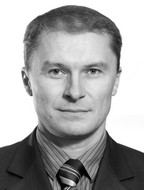Sprinters' stress tolerance building method
Фотографии:
ˑ:
O.V. Sergeev1
Dr.Hab., Professor I.V. Manzheley1
1Tyumen State University, Tyumen
The study analyses issues of psychological and educational support in sports. Experiments confirm the fact of significant and individually determined effects of mental and physical stresses that tend to extend the latent time of the simple and complex mental responses associated with regresses in competitive accomplishments on the whole and sprint events in particular. We have developed a sprinters’ stress tolerance building method applicable in an annual training cycle and tested its benefits. The method considers the coach’s and athlete’s reflexive interaction with the relevant progress tests, goal-setting, skill mastering, application, support, reflexion, correction and prevention of mental/ emotional conditions to manage the sprinters’ behaviour and performance as required by their individual traits. The sprinters were classified into four groups in need of: (1) systemic corrections; (2) occasional corrections; (3) situational help and (4) preventive support, subject to special training and precompetitive fitness securing psychological and educational support. Benefits of the individualized mental settings by coaches were verified by the experiment.
Keywords: sprinters’ stress tolerance, psychological and educational support, reflexive interaction, individualized mental setting by coach.
References
- Aikin V.A., Koryagina Yu.V. Sovremennye tendentsii v fiziologii bega na dlinnye i sverkhdlinnye distantsii (zarubezhny opyt) [Current trends in physiology of the long and ultra-long distances running (foreign experience)]. Uchenye zapiski un-ta im. P.F. Lesgafta, 2014, no. 7. Available at: http://cyberleninka.ru/article/n/sovremennye-tendentsii-v-fiziologii-beg....
- Germanov G.N., Nikitushkin V.G., Tsukanova E.G. Izuchenie determinant podgotovki, opredelyayuschikh uspekh vystupleniya sportsmenov stran Evropy v legkoatleticheskom sporte vysshikh dostizheniy [Research of determinants of training, defining the European countries sportsmen performance success in track and field athletics in elite sports]. Uchenye zapiski un-ta im. P.F. Lesgafta, 2012, no. 2. Available at: https://cyberleninka.ru/article/n/izuchenie-determinant-podgotovki-opred....
- Zagvyazinskiy V.I., Manzheley I.V. Obshchaya panorama pedagogicheskogo issledovaniya po problemam fizicheskoy kultury i sporta [Pedagogical research on the issues of physical education and sport: overview]. Teoriya i praktika fizicheskoy kultury, 2016, no. 3, pp. 3-5.
- Zalikhanova A.A. Vliyanie psikhologicheskikh faktorov lichnosti na sorevnovatelnoe sostoyanie begunov s razlichnym urovnem realizatsii sorevnovatelnykh tseley [Effect of individual psychological factors on competitive state of runners with different levels of implementation of competitive objectives]. Teoriya i praktika prikladnykh i ekstremalnykh vidov sporta, 2010, no. 4 (19), pp. 42–44.
- Pavlova O.I. Innovatsionnye podkhody k trenirovke legkoatletov v period predolimpiyskogo tsikla [Innovative Approaches to Athletes' Training within Pre-Olympic cycle]. Teoriya i praktika fizicheskoy kultury, 2013, no. 1, pp. 73–75.
- Sergeev O.V. Formirovanie stressoustoychivosti u legkoatletov-sprinterov na etape uglublennoy spetsializatsii [Development of stress tolerance in sprinters at in-depth specialization stage]. Teoriya i praktika fizicheskoy kultury, 2012, no. 8, P. 34.




 Журнал "THEORY AND PRACTICE
Журнал "THEORY AND PRACTICE